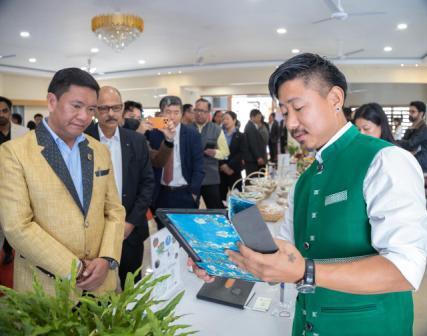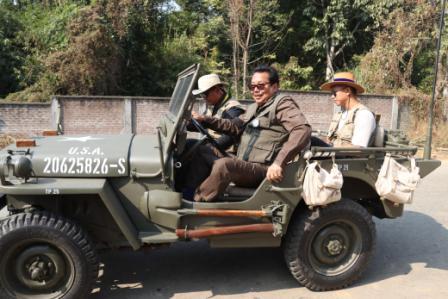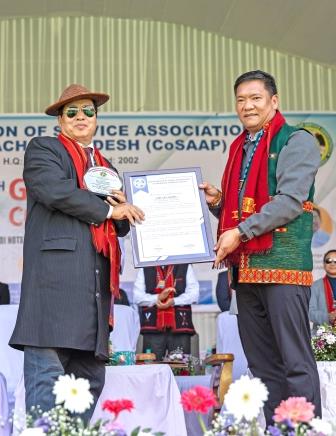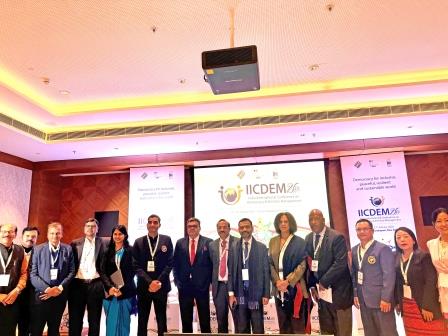-
 Startup success stories reflect potential of state’s youth: CM
Startup success stories reflect potential of state’s youth: CM
-
 Mein participates in vintage Willys Jeep Rally, inaugurates World War…
Mein participates in vintage Willys Jeep Rally, inaugurates World War…
-
DG Assam Rifles visits Khonsa Battalion
-
Governor advises DGP to take firm action on illegal migration
-
International white water kayaking to be held on the Tawang…
-
Raja convenes high-level meeting on effective traffic management
-
 NPS concerns genuine, needs careful consideration: CM Khandu
NPS concerns genuine, needs careful consideration: CM Khandu
-
Women-run kitchens showcase local cuisine
-
 Team Arunachal Pradesh participates in IICDEM 2026; leads thematic…
Team Arunachal Pradesh participates in IICDEM 2026; leads thematic…
-
24hr bandh hits normal life in Lower Subansiri
While the longing to see the world completely free from hunger and starvation is often viewed as a pure utopian idea, there is always a deep respect for those who strive for it and any recognition that comes in the process for them is a matter of sheer satisfaction for all who believe in equality and social justice. The Nobel Committee’s decision of bestowing the Nobel Peace Prize 2020 to the World Food Programme (WFP), the United Nations’ entity which has been making phenomenal contributions in fighting global poverty is a perfect choice. And for any Indian, it’s indeed the time for extra elation as the WFP has embossed solid footprints in the country through its wide-ranging activities since 1963.
The Committee while making the announcement on Friday has said that this year’s Peace Nobel is an acknowledgement of the enormous contributions made by the WFP during Covid-19 pandemic which has made a devastating impact on millions across the world resulting in a global hunger of the proportion and ubiquity rarely seen before. It’s really astonishing when one comes across the scale of activities the WFP engaged itself in during the critical days of the pandemic and is continuing to do the same on the day. These were hardly reported by the Indian mainstream media until the award’s declaration, since the ‘other dutiful engagements’ had been too compelling to ignore! Besides extending medical logistics services to over 120 countries, the agency provided passenger services to transport humanitarian and health workers where commercial flights were unavailable in areas where the pandemic had been severe. It has been reported that on any given day during the pandemic, an active fleet of 5,600 trucks, 30 ships and nearly 100 planes was always in the thick of action to deliver food items and other assistance to the hapless and hungry people. Besides the exemplary response during the pandemic, the WFP which is the largest humanitarian organisation addressing global hunger and promoting food security, last year alone reached out to nearly 100 million people in 88 countries. The WFP’s connection with India is strong and has been since the 1960s when the country stared at food insecurity and the bond has grown stronger in recent years. With the aim of bringing path-breaking reforms in the PDS, the WFP has proposed to the Central government a set of innovative solutions like Automatic Grain Dispensing Machine (Annapurti) which will allow beneficiaries to withdraw their exact foodgrain quota, thus minimising malpractices.
Success of WFP is truly inspiring at a time when governments are failing to deliver governance. The Peace Nobel has gone to the fittest entity and during an 'appropriate' time when hunger is at an all-time high.

Kenter Joya Riba
(Managing Editor)She is a graduate in Science with post graduation in Sociology from University of Pune. She has been in the media industry for nearly a decade. Before turning to print business, she has been associated with radio and television.
Email: kenterjoyaz@easternsentinel.in / editoreasternsentinel@gmail.com
Phone: 0360-2212313

